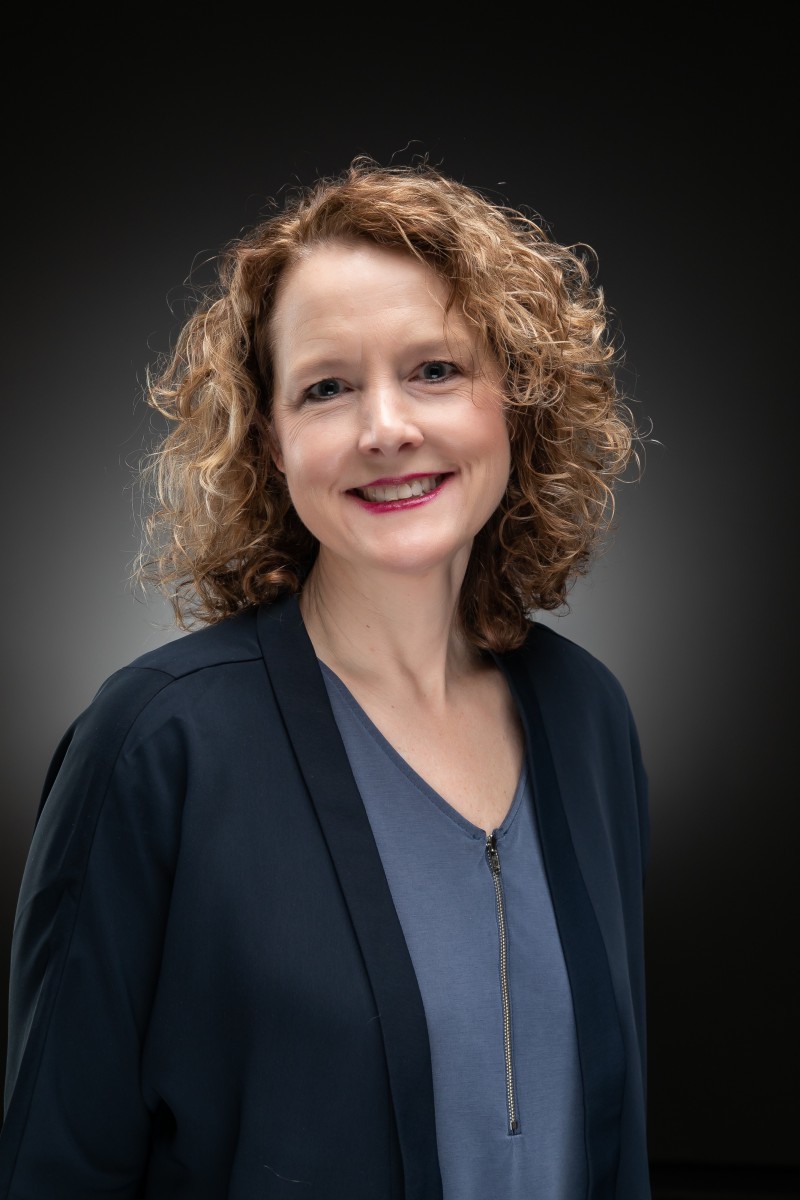Dr. Amy Vujaklija on her Work and Community Connections

A Kentucky native, Dr. Amy Vujaklija was first charmed by the beautiful landscape showcasing signature sculptures on Governors State University’s (GSU) summer campus. Even the weary Paul Bunyan made Vujaklija smile when she first arrived on campus in 2016 as a program coordinator.
Now the Director of Educator Preparation, Accreditation, and Assessment in the College of Education, as well as a professor and podcaster, Vujaklija teaches pre-service teacher candidates in middle and secondary English education methods in the College of Education.
The endless opportunities for professional growth continue to inspire Vujaklija, along with the faculty and staff's positive attitudes. Now she makes every effort to share her pride by increasing GSU's visibilty to the community.
Dr. Vujaklija recently received tenure.
GSU Newsroom: What does it mean to you to receive tenure?
Vujaklija: At the beginning of the fall semester, after receiving tenure I remember having a brief conversation in the café with another professor who asked for my thoughts on a project. After brainstorming some ideas together, he said he was glad we bumped into each other. I realized then that my experience and relationships at GSU have helped me develop a very broad and deep understanding of several facets of the university's initiatives and processes. I am not finished learning, far from it, but post-tenure I finally feel I have come into my own.
GSU Newsroom: What drew you to your field of study?
Vujaklija: My bachelor’s degree in English eventually led me to teaching. I taught first-year composition before starting my career as a middle and high school teacher. At some point along the way, I discovered how much more I wanted to learn about teacher professional development and leadership, which became my dissertation study.
GSU Newsroom: What are your current research interests?
Vujaklija: I am fascinated by all things professional development and leadership and how these elements can work together to retain teachers in the classroom. There is a through-line of equity, social justice, and diversity in the work I have done as a secondary teacher educator and that I do now as director of educator preparation. The numbers tell us something, but it is important for me to know the narrative behind the numbers to better understand a person’s experience and to predict the impact my/our work might have.
GSU Newsroom: Can you share a bit about your work with Dr. Phyllis West with the Social Justice Initiative?
Vujaklija: Dr. Phyllis West and I co-facilitated a group of student leaders last spring on a Civil Rights tour and "Becoming a Beloved Community" conference in Auburn, Alabama. Students of different majors, ages, races, ethnicities, and nationalities made meaningful and lasting connections with one another, a microcosm of the GSU Beloved Community, defined by the King Center as a community in which everyone is cared for, absent of poverty, hunger, and hate. Another part of social justice is restorative justice, which is gaining more attention at the preK-12 grade levels. In my role in educator preparation, I encourage pre-service educators to become active leaders in the Becoming a Beloved Community movement at Governors State University and shine with these values in their careers beyond GSU.
GSU Newsroom: What's next for the Teaching and Learning: Theory vs. Practice podcast?
Vujaklija: Dr. Joi Patterson and I started the Teaching and Learning podcast in 2020 to stay connected and provide a professional development service, as well as to build visibility for the university. We have begun a newsletter to highlight episodes around specific topics. The next project I am working on is clipped content from our longer podcast episodes. These shorter segments of 4-7 minutes drill down to fundamental concepts such as identifying bullying, and effects of bullying. I hope to create a new space for sharing these “pocket professional development” tools with K-12 educators.

